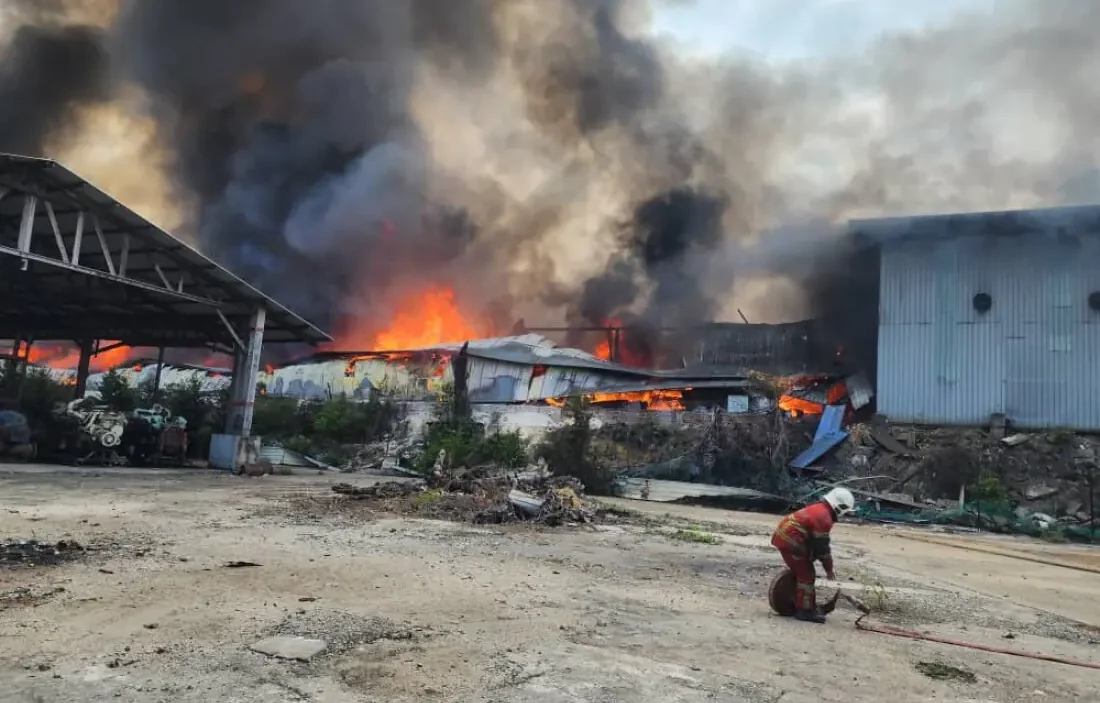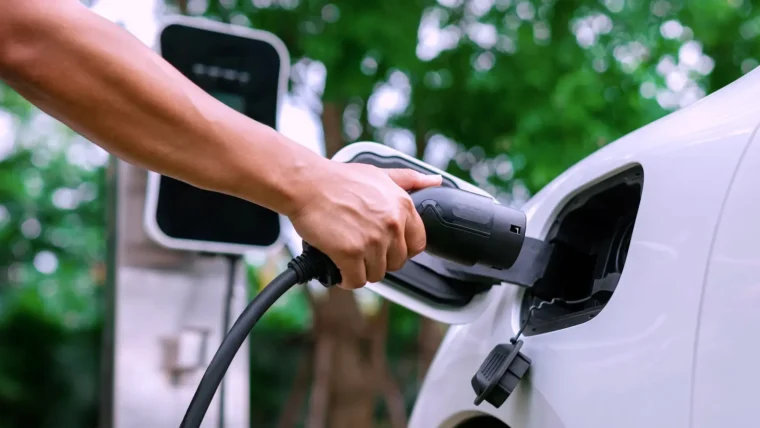A devastating fire has left an electronic waste and EV battery collection facility in Bukit Rambai Industrial Area in ruins. But if there’s a silver lining in this disaster, it’s a big one—thankfully, no casualties have been reported, as confirmed by the Melaka Fire Department.
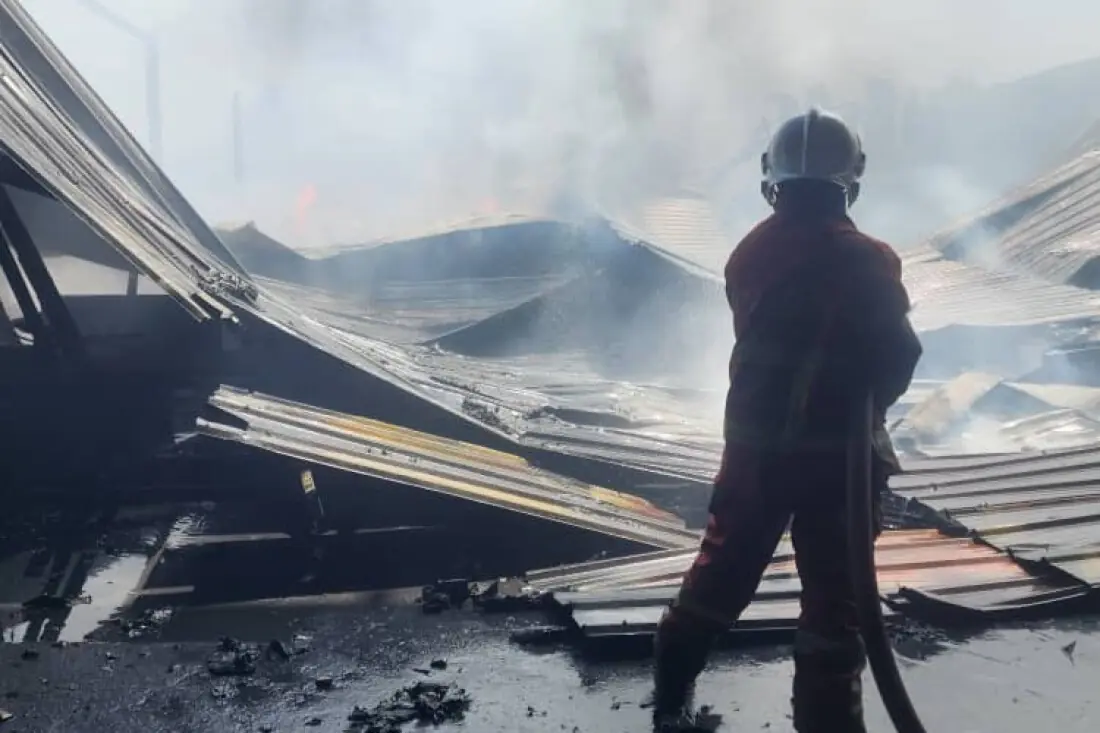
The blaze broke out around midday, 12pm, prompting an urgent response from 30 firefighters across five stations. Teams from Tangga Batu, Cheng, Melaka Tengah, Ayer Keroh, and Alor Gajah rushed to the scene, armed with a Fire Rescue Tender (FRT) vehicle, a water tanker, and seven personnel from Tangga Batu.
Backup soon arrived, including three more FRTs, another water tanker, an Emergency Medical Rescue Services (EMRS) unit, an Aerial Ladder Platform (ALP) vehicle, and a specialised Hazmat team.
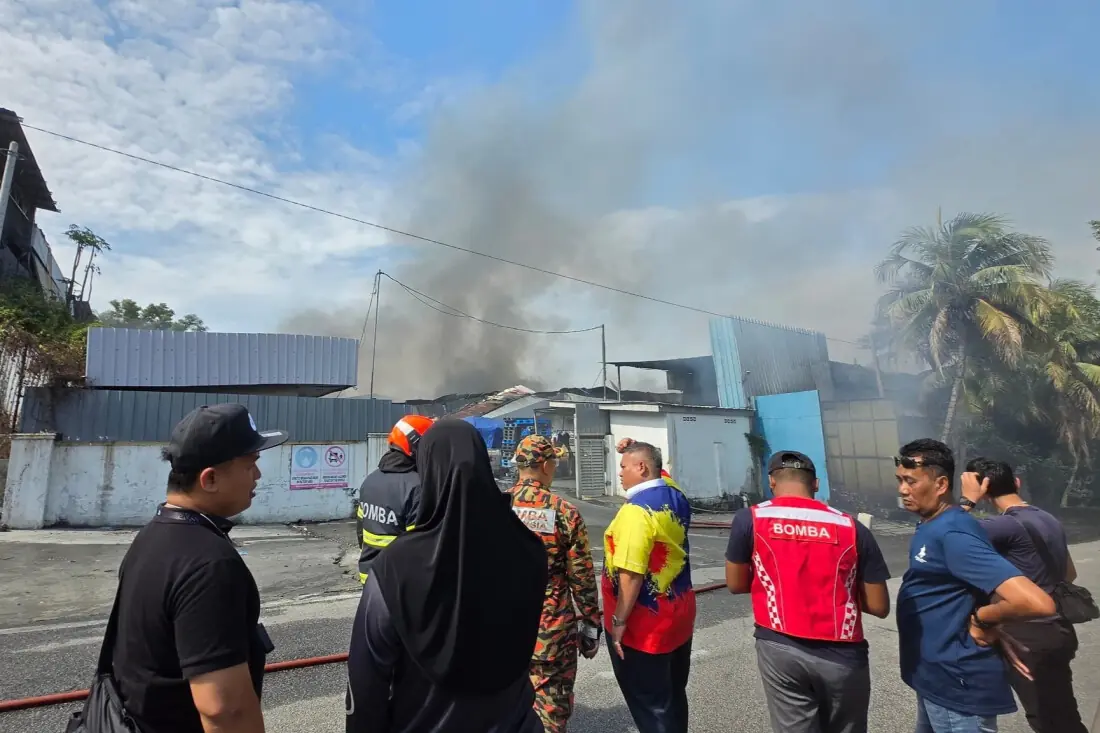
Despite their swift efforts, the inferno had already engulfed 90% of the building by the time firefighters reached the site at 12:56 pm. The battle raged on for hours, with crews finally managing to subdue the flames by 5 pm.
Raising Alarms Over Safety & Regulations
In the wake of the blaze, Senior State Executive Councillor Datuk Rais Yasin has ordered authorities and the Department of Environment to probe the facility’s compliance with safety and environmental regulations. But the implications go far beyond this single incident.
The charred remains of the plant serve as a stark wake-up call for Malaysia’s EV industry. Compared to the high-tech, tightly regulated battery recycling and e-waste facilities seen in more advanced markets, the state of this destroyed facility raises troubling questions about enforcement and oversight in Malaysia’s push towards electrification.
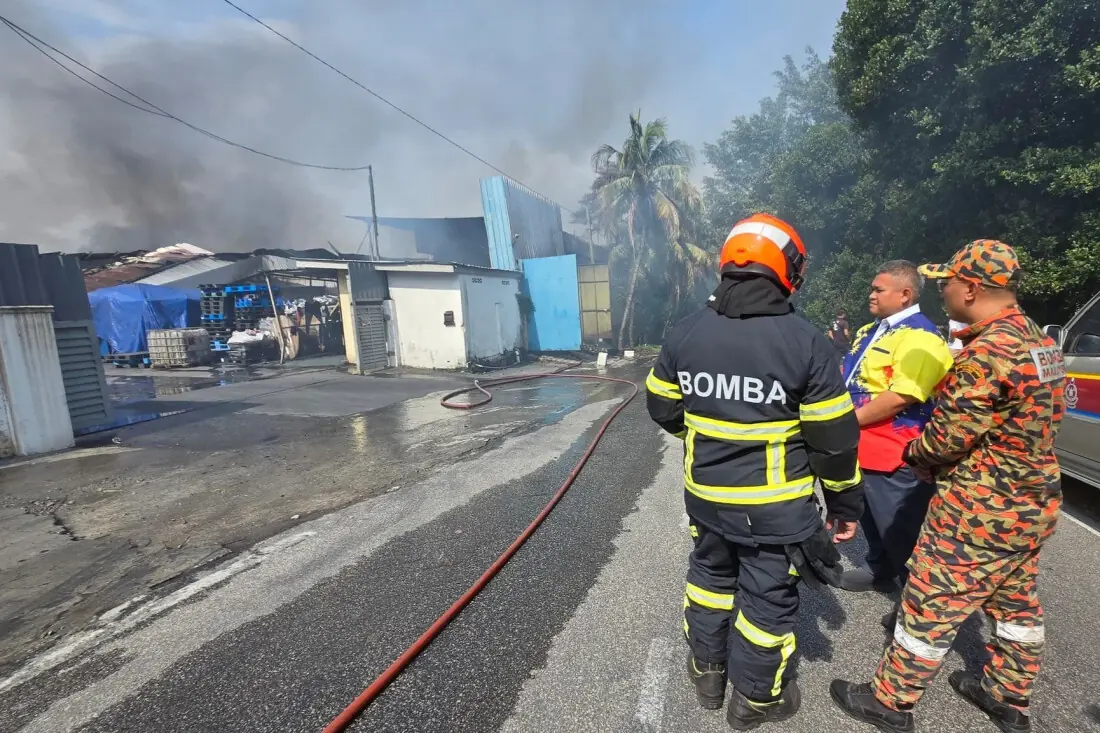
While EV sales and charging infrastructure are rapidly expanding, this fire highlights the urgent need for a fully integrated strategy that considers the entire EV lifecycle.
Sustainable adoption isn’t just about selling more EVs—it requires a comprehensive plan for battery disposal, second-life applications, and proper end-of-life recycling.
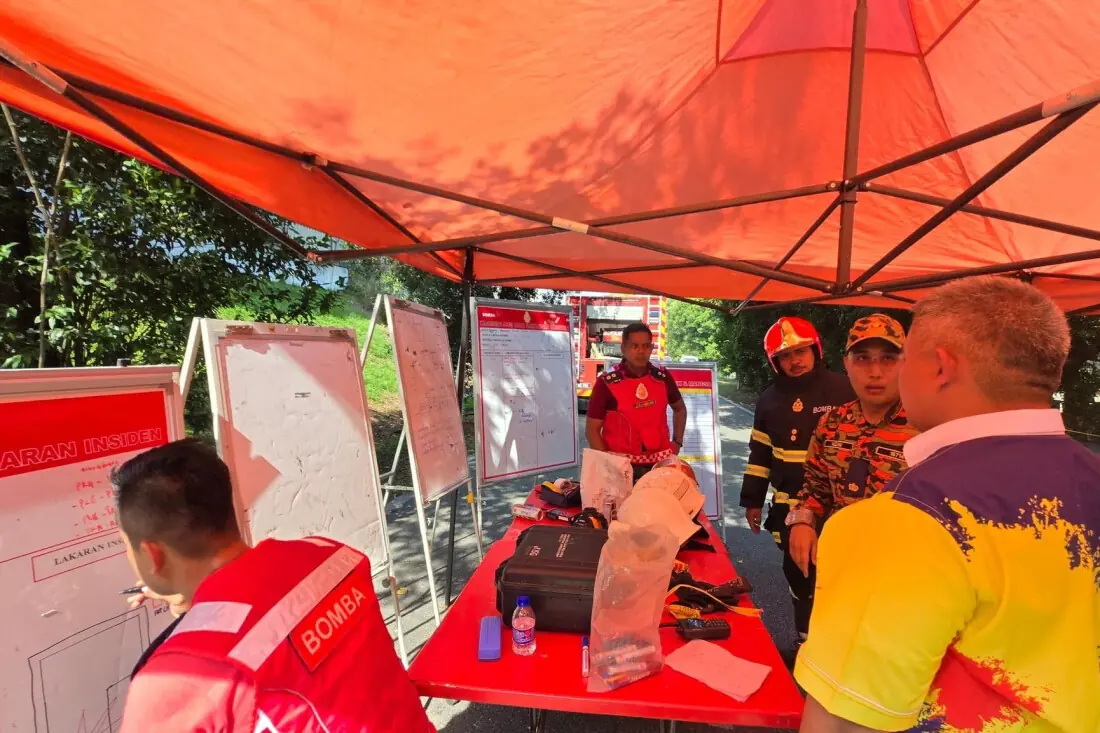
Without stringent regulations and better industry enforcement, Malaysia risks serious environmental hazards and potential safety crises that could stall its long-term sustainability ambitions.
Stronger licensing, oversight, and adherence to global best practices are now more crucial than ever to ensure a safe and sustainable future for the country’s EV ecosystem.
Other posts by Keran

